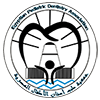
Prof. Morenike Folayan

Biography
Professor of Paediatric Dentistry with the Obafemi Awolowo University, Ile-Ife, Nigeria. Her core area of work in Dentistry is Early Childhood Caries epidemiology. She also engages in research on tooth eruption, dental anomalies and dental anxiety management. She conducts work in bioethics with focus on community engagement with research. She also works in the HIV and AIDS field promoting access of adolescents to biomedical HIV prevention tools, advocating for policies and programs that improve access, and facilitating the translation of research to policies and programs.
Lecture
What South-North Collaboration looks like: making local changes through global collaboration
Background: Research outputs in Africa has lagged behind the growth and developmental needs of the continent. The pace and quality of research need to be stepped up. Research outputs in Africa had largely being through North-South collaborations; and routed through the Global Health agenda. This presentation is a reflection on my conceptualisation of building Africa relevant research through South-North Collaboration that breeds the much needed South-South Collaboration to conduct research for the good of Africa
Methods: I shall use the process of reflectivity to expound on my experiences in developing South-North collaborations; how I had used the South-North collaborative processes to facilitate South-South collaborations; and how I have used both the South-North and South-South collaborations to strengthen local research collaborative practices and research outputs (grants writing, research planning and conduct, manuscript writing). I shall also reflect on how I had facilitated processes of translating research outputs into policies and practices by being an activist and being engaged in policy decision-making.
Lessons learnt: South-North Collaboration are likely more powerful in driving the growth of the global south that North-South Collaborations can. Pioneering efforts at instituting South-North collaborations will require that researchers acquire other skills that facilitate communications with other actors and players outside the research enterprise. Change is a central theme that will continue to emerge in every effort to translate the North-South Collaborations into South-South collaborations and local capacity building.
Conclusion: The environmental contexts for building South-North Collaborations is currently very favourable. A lot more southern researchers need to learn the skills for instituting collaborations and driving collaborative agendas built on the strength of partners for the growth and development of the global south.
